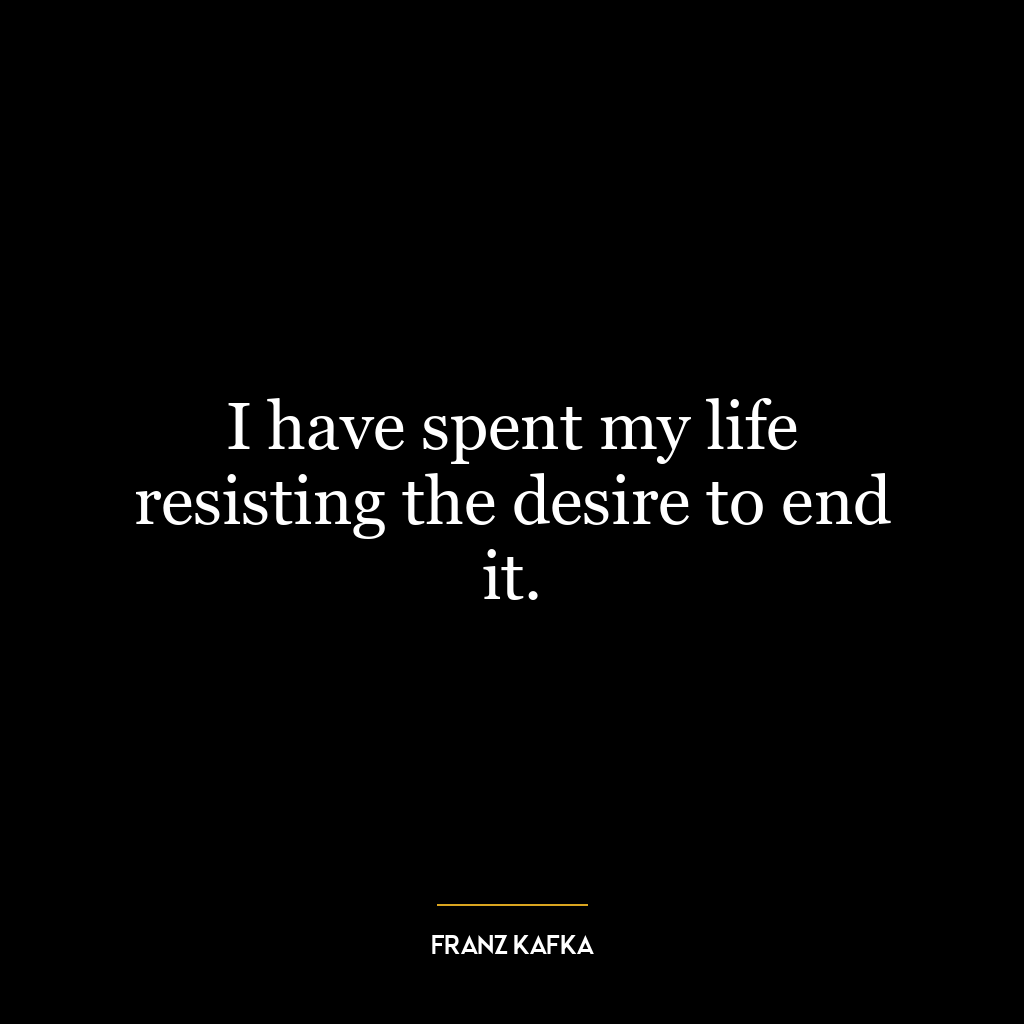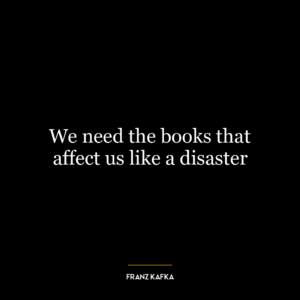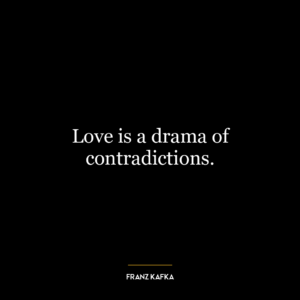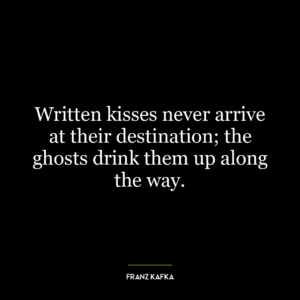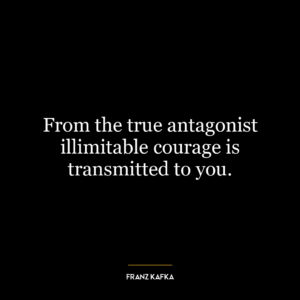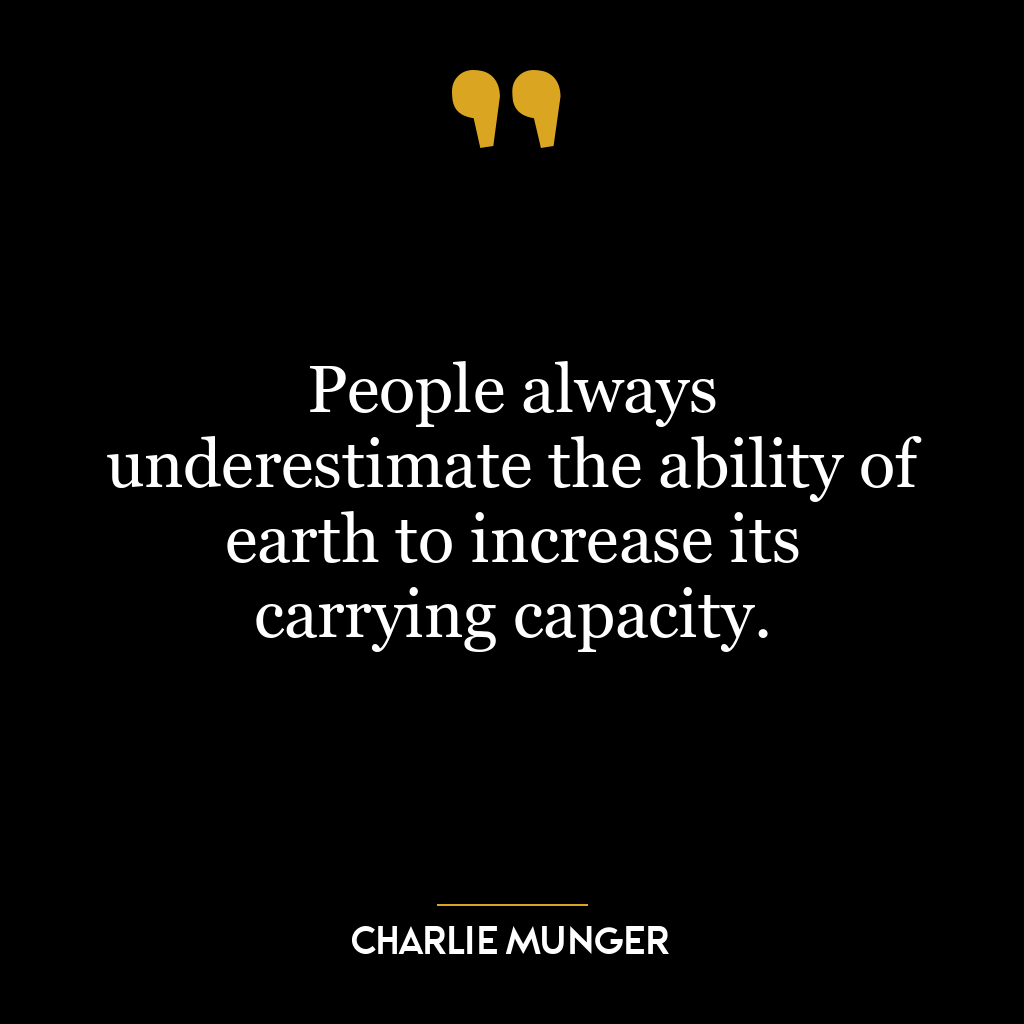I have spent my life resisting the desire to end it.
This quote reflects a profound struggle with existence, where the speaker has spent their life resisting the impulse to end their own life. It is a stark admission of a constant internal battle with despair and a longing for oblivion, yet it also signifies a continuous act of survival and resilience. It is not merely about the contemplation of suicide, but more broadly, it speaks to the human condition of enduring hardship, pain, and existential crises.
This quote also encapsulates the idea that life can be a continuous struggle against one’s own negative thoughts or emotions. It suggests a life lived in the shadow of depression, anxiety, or other mental health issues, where every day becomes a challenge to keep going, to keep resisting the urge to surrender to the darkness.
In today’s world, this quote is particularly relevant. With the rise in mental health awareness, more and more people are opening up about their struggles with depression, anxiety, and suicidal thoughts. The quote can serve as a reminder that everyone is fighting their own battles, often unseen and unspoken. It encourages empathy and understanding towards those who might be silently struggling.
In terms of personal development, this quote can be interpreted as a testament to human resilience and the power of survival. It reminds us that even in the face of overwhelming despair, humans have the strength to resist, to keep going, and to choose life. It encourages us to cultivate resilience, to seek help when needed, and to continually work on our mental and emotional well-being. It also emphasizes the importance of compassion – for ourselves and for others – as we navigate through life’s challenges.

